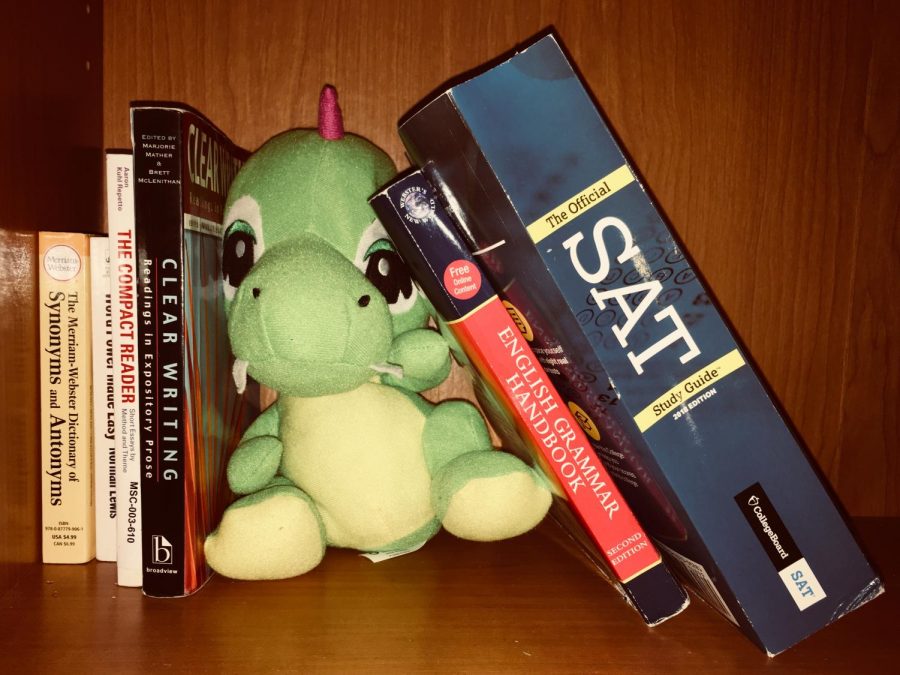Greater than, less than
Understanding our role in the miscellany of life
October 24, 2018
Growing up, our parents tell us that we are among the best of the best — as humans, nothing can hinder our progress because we are clearly meant to rule the world. As children, we have the brightest futures ahead of us and need only to take the first step towards a lifetime of success.
With this in mind, elementary school passes by in a blur of happy afternoons spent at our best friend’s house, hours of televisions shows that we still watch more often than we’re willing to admit and whimsical stories brought to life with our collections of stuffies.
Our fifth-grade standardized tests explain that our skills score far above the high school level, despite the fact that we are far from mature enough to handle the pressures of such prestigious institutions (honestly, what is the government thinking?). We scoff at our peers who score at the middle school level and laugh at our classmates who still struggle to pronounce “Wednesday.”
(It’s only “Wed-nes-day” when we have to spell it.)
Then comes middle school, where we learn about capitalism and chromosomes and what it means that Demi Lovato is back in rehab. The simple six-number grading scale is replaced by a complex matrix of weights and percentages, which are then replaced by a disturbing sequence of letters and checks. Instead of colorful scrunchies keeping loose pigtails together, tight ponytails are held up by intricate braids and hairspray.
We are going to make the most of being born into the awe-inspiring human race, regardless of how deeply it terrifies us.
We are introduced to a world of followers and likes, where edited pictures of too-bright smiles tell us that we don’t love each other enough. In this world, climate change exists, pandas are going extinct and divorce is the newest addition to our extensive vocabulary. Yet we endure because we still have faith in what we were taught (here’s why) — we are going to make the most of being born into the awe-inspiring human race, regardless of how deeply it terrifies us.
(Besides, everyone knows that high school is where things really start happening.)
Freshman year finally arrives and it feels like we are on the cusp of drowning in our own underachievement. (Don’t worry, it’s normal.) We have opened yet another door that has led us not to the beauty of the adult world, but an endless mire of confusion embedded in failure.
To cope, we pride ourselves in not being obsessed with popularity but “working the hardest.” We convince ourselves this present misery is a necessary step towards guaranteed success, that we are righteous heroes in our own narratives and that it’s normal to break down crying every other night.
We no longer recognize how play dates at each other’s houses have turned into seven-hour “cram-fests” at the library. We forget that obsessing over celebrities or fictional characters or whoever “wrecked the curve” is not an appropriate substitute for going outside and seeing people.
(After all, every secure Western hero has left their childhood behind in search of destiny, right?)
Instead of reiterating that we have every right to be proud of what we are doing, teachers are now telling us to tone down the mindless aggression, arguing that there is more to life than an incessant longing for triumphs beyond our capability. Somehow we have transcended this responsibility and taken it too far, but we have no idea how to stop.
It slips our minds that we are leading ourselves and everything around us to premature devastation by ignoring the direct repercussions of our actions.
Trapped between the need to be empathetic, motivating leaders and the desire to be fearful wallflowers to our path of self-destruction, they plead the case of humility over hubris. In introductory literature, we read short stories that emphasize how nature’s existence is almost guaranteed to endure beyond that of humans. In mandatory freshman biology, we are taught that humans are not only less complex than many other organisms but also in no way superior, more evolved or essential to this planet.
It slips our minds that we are leading ourselves and everything around us to premature devastation by ignoring the direct repercussions of our actions. Climate change is real!
(We brush it off, the egotistical smarty pants that we are.)
Then we are reminded (gently) that we are intrinsically less complex than a flea; we slink back to our dens to nurse our wounds and contemplate this shocking revelation.
Since then, we experienced no divine intervention that showed us how to behave as proper members of society, but we have come to understand nonetheless that consequences aren’t just some absurd monsters invented to trick us into taking responsibility: our deep hunger for validation is in no way a valid excuse for reckless negligence.
The sooner we come to a collective understanding of this, the sooner we can get back to that wide-eyed optimism we so fondly remember.
















